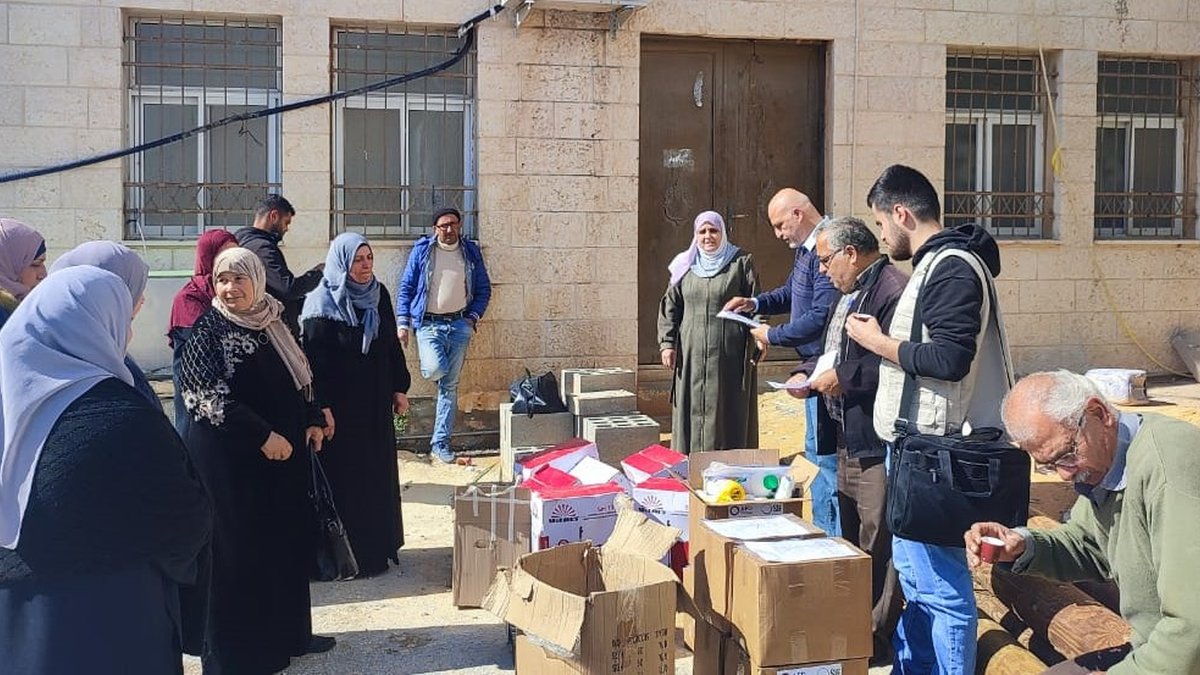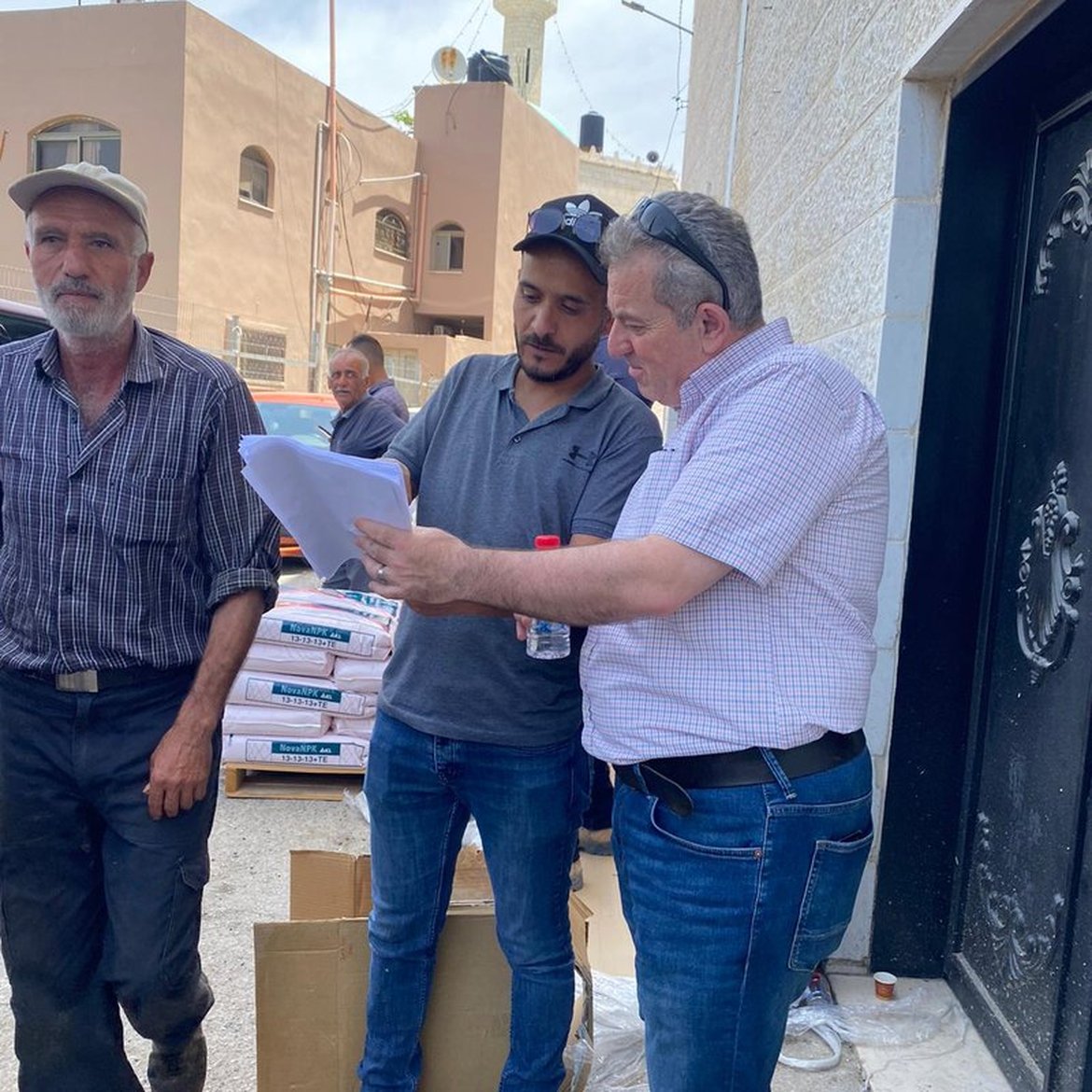
As part of its efforts to support the Palestinian agricultural sector and achieve sustainable development goals, the Faculty of Agriculture and Veterinary Medicine, alongside the Energy, Water, and Food Security Research Center at An-Najah National University (www.najah.edu), successfully completed the distribution of agricultural inputs to farmers in the targeted governorates of Nablus, Tulkarem, and Jenin. This activity is part of the Community Resilience Building and Livelihoods and Food Security Improvement Project through Good Agricultural Practices (PAL GAP), in collaboration with the project partners.

A total of 427 farmers, both male and female, who are participating in the project’s activities to obtain the Palestinian PAL GAP certification, received agricultural supplies and inputs. This initiative is funded by the French Development Agency (AFD) and Islamic Relief France (SIF) and is implemented by An-Najah National University in partnership with the Palestinian Economic and Social Development Center (ESDC), in coordination with the Palestinian Standards Institute (PSI) and the Ministry of Agriculture (MoA).

The objective of this activity is to support farmers with essential agricultural inputs and personal protective equipment to handle chemical production inputs safely. This support facilitates the adoption of good agricultural practices, improving productivity and increasing farmers' income. Additionally, it helps reduce poverty levels among rural households, increases food production, and strengthens food security within local communities. Through these efforts, the project directly contributes to achieving several United Nations Sustainable Development Goals (SDGs), including the eradication of poverty, ending hunger, and promoting good health and well-being.

عدد القراءات: 264





